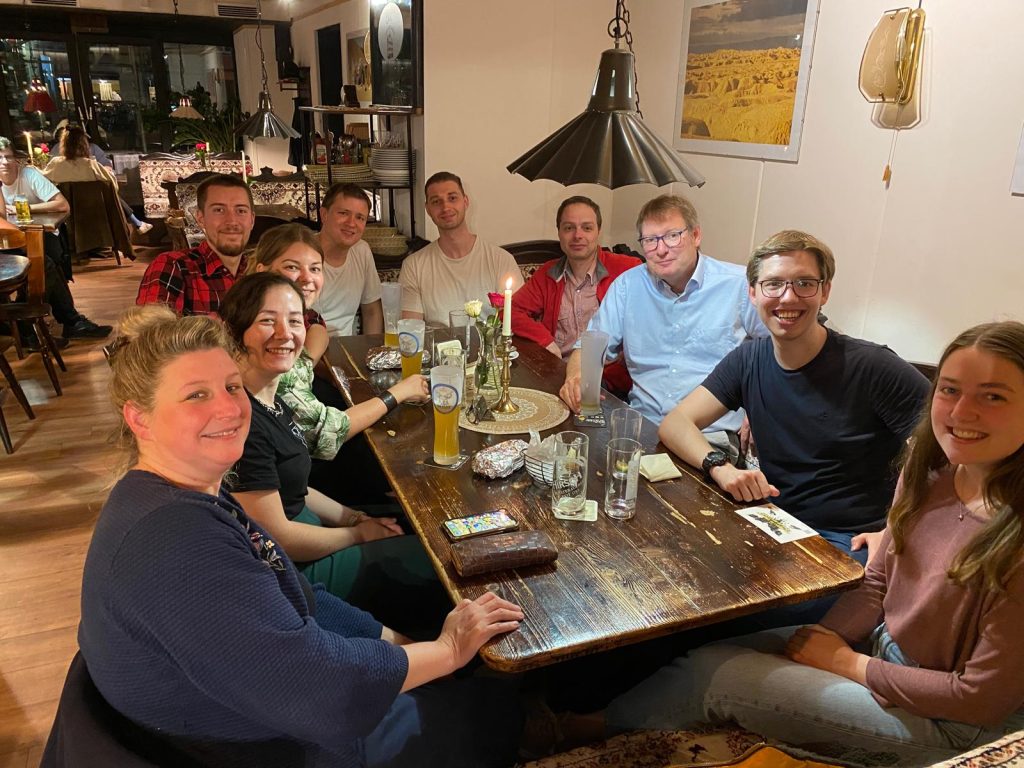Dr. Tim Angelike from the Psychology Department at University of Düsseldorf held a very well attended research talk on May 17th in our iScience research colloquium. His research focuses on how humans generate random numbers and what biases they succumb to. You can find the abstract of his talk below.
Definitely not random: The inspiring conversation that the iscience group as well as the students got to have with Dr. Angelike (second from right) after the talk! ✨

Abstract: Several fields of psychological research have investigated the reasons why people have difficulty behaving randomly. This is often investigated with the so-called random number generation (RNG) task. In this task, participants are asked to generate a sequence of numbers that is as random as possible. The task is often used as a test of executive functioning in cognitive and clinical psychology. Previous studies have used various measures from psychological research, computer science, and mathematics to quantify the randomness of the generated sequences or the lack thereof. However, the use of a plethora of measures has been criticized by researchers for being subjective and not allowing for comparisons between studies. The first study presented here is the first comprehensive, comparative investigation of different methods for quantifying randomness. In a second investigation, a formal model of the systematic behaviors underlying the generation of random sequences in humans was modified and extended. This approach allows for the simultaneous estimation of different systematic biases that people show when trying to generate random sequences. This study showed that the newly proposed model is better able to describe human behavior than the original model. Finally, a simulation study is presented in which a new measure of randomness based on algorithmic complexity theory promising to detect any kind of regularity in a sequence is assessed regarding its usefulness for serving as a universal measure of randomness for the analysis of human-generated sequences.
